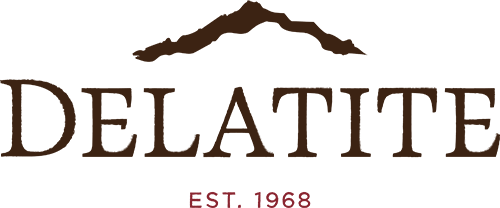So, natural wines. Aren’t they those awful, faddy, cloudy wines? The wines that no lesser a critic than Robert Parker called “a fantasy of marginal producers” and an “undefined scam”.
Yep, those ones.
For years wine drinkers have been told to appreciate structure, clarity, freshness and elegance and along come these zealots who say let’s go back to how it used to be made. Let’s make wine without pesticides, herbicides, lab-grown yeasts, antimicrobial chemicals, fining agents and filtration and call it “natural”.
Of course not all wine is made in a factory with grapes that have been doused in chemical. The organic and biodynamic movement has seen big changes in how grapes are grown.
Pesticides are increasingly recognized as being bad for the environment and the consumer. Delatite hasn't used pesticides since 2006 and nor do many Australian vineyards.
Herbicides are harder to give up, but if you have visited Delatite, or any other winery, and seen weeds and slashed grass between the rows, that is the sign of a vineyard weaning itself off the God Glysophate.
But just growing grapes organically, even biodynamically, does not make wine “natural”.
Natural wine is made in the cellar.
If left to their own devices, all those nice juicy grapes, covered in a light dusting of natural yeasts would be taken to the crush and told to get on with it. Next thing you know, the yeasts would be feasting on the sugars until there are none left, leaving alcohol in their place.
But the result can be a little…wild. Not what the consumer expects. So, winemakers go to school to learn how to turn what you get if you leave the grape juice out on the counter and what is reverently served in a restaurant, with a napkin wrapped around it.
They learn how to filter to make the wine clear, how to use fining agents (typically egg whites and milk) to make them softer. Then they have a bit of a taste and maybe add some tannin to make a red more robust, or acid, if it’s unbalanced. They might fiddle around with a bit of sulphur to stabliise it. These are not the actions of an evil winemaker, trying to trick you. These are what most conscientious winemakers do to make a delicious, stable, consistent wine that they hope you will enjoy and recognise.
So where does Delatite fit into all this? Well, somewhere in between.
First up, in our Estate and Reserve range, we only use the yeast that are already on the grapes and in the winery, known as “wild” yeasts. These give more vintage variety and complexity, because different yeasts prosper in different vineyards
Secondly, we don’t use fining agents. In part this is because we don’t have to. By handling smaller amounts of grapes, handpicking and processing them almost as soon as they get picked, they don’t get as damaged, which means less bitterness. It also has the advantage of making them vegan-friendly
And lastly, we don’t filter our red wines. Filtration does make wine brighter, but it also takes out flavor. Our reds aren’t cloudy but nor are they perfectly clear.
But we do make one natural wine and that’s the Estate Hell’s Window. Made from Gewurztraminer, Pinot gris and Riesling grapes, they’re picked on the same day, crushed together and co-fermented on skins (like a red wine), before being pressed and put in old oak puncheons. Nothing is added and there is no filtration.
The result is pinkish, with a slight spritz, and cloudy. It has a bit more tannin than you might expect in a white wine. A bit more yeast from being on the lees in the puncheon.
Is it nice?
Lots of people really love it. It’s our fastest growing wine in the stable at the moment, in part because of the huge popularity of the style in young drinkers.
Perhaps it’s better described as a drink than a fine wine. Think Aperol Spritz!
For us it’s been an exciting adventure and who knows, maybe a Pet-Nat will be next?
What’s a Pet-Nat?
That’s a story for another occasion.
Yours in grapes.
For more information on the subject of natural wine, consider reading this story in theGuardian.



